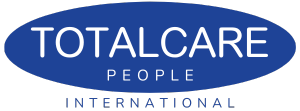
Navigating Employee Health: Traditional vs. Alternative Sick Notes
1. Doctor’s Note: The Standard Medical Documentation
A doctor’s note is provided by a licensed medical doctor or other healthcare professionals. This document is widely accepted across various sectors including businesses, schools, and other institutions. It serves as a valid proof of illness or a medical condition necessitating absence from work or school. Here’s what it typically includes:
- Diagnosis and Treatment: Based on conventional medical practices, including details about the illness and prescribed treatment.
- Duration: Specifics on how long the employee should rest or stay away from work.
- Regulation: Adheres to standards set by medical boards, ensuring reliability and compliance.
2. Alternative Healer’s Sick Note: A Holistic Approach
Issued by practitioners of alternative or complementary medicine (like naturopaths or chiropractors), these notes offer a different approach. The acceptance of such notes can vary greatly depending on the institution:
- Holistic Practices: May involve treatments like herbal remedies, acupuncture, or dietary changes.
- Varied Acceptance: Not all organizations recognise these as valid excuses for absence, as they often lack standard medical validation.
- Personal Beliefs: These notes resonate with individuals who prefer non-conventional medical care.
Key Differences and Organisational Impact
- Acceptance: Doctor’s notes are universally accepted and often required for official purposes such as insurance claims or disability accommodations. In contrast, the acceptance of alternative healer’s sick notes can depend heavily on company policy and the cultural attitudes towards alternative medicine.
- Documentation: Conventional sick notes are detailed with medical specifics regulated by health authorities, whereas alternative notes are less formal and focus more on holistic wellness.
Navigating Sick Notes in Your Organization
- Policy Clarity: Clearly define what types of sick notes are acceptable within your organisation. This will help in managing absences effectively and fairly.
- Flexibility and Inclusivity: Recognising alternative sick notes might be beneficial, reflecting inclusivity and support for diverse medical preferences among employees.
- Consult Legal and HR: When in doubt about the implications of accepting various sick notes, consulting with HR or legal advisors can provide guidance tailored to your organisation’s policy and compliance needs.
Understanding the nuances between different types of health documentation is key in today’s workplace. Whether accommodating traditional medical notes or integrating more holistic approaches, maintaining a clear and fair policy is essential. For further assistance or if you’re unsure how to handle a specific type of sick note, consider reaching out to professional services like TOTALCARE People Solutions. They can offer expert advice and ensure that your policies align with both legal standards and employee wellness.